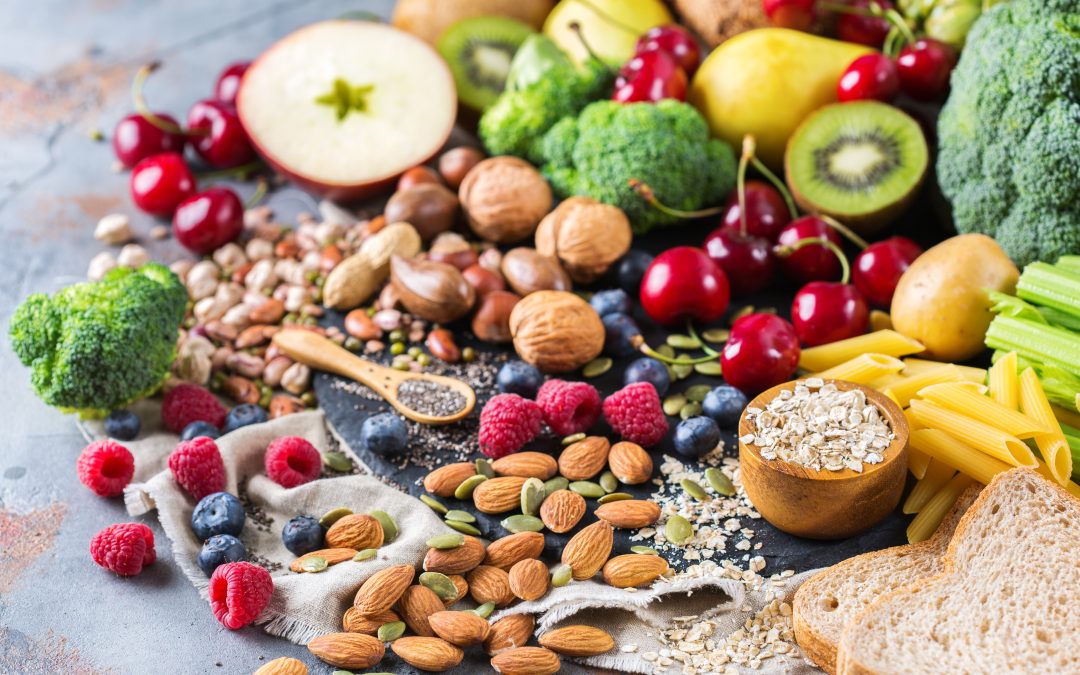In today’s fast-paced world, hormonal imbalances and stress are common issues that can impact both your physical and mental health. What many people don’t realise is that your nutrition plays a key role in managing both. A balanced diet, combined with regular exercise, can help regulate your hormones, reduce stress, and promote overall well-being. Understanding which foods support hormonal health and how to incorporate them into your daily routine can make all the difference.
Here are some practical nutrition tips to help you maintain hormonal balance and manage stress more effectively.
Table of Contents
Focus on Whole Foods
A diet rich in whole foods—fruits, vegetables, lean proteins, and healthy fats—provides your body with essential nutrients that help regulate hormones. Highly processed foods and excessive sugar can lead to imbalances, exacerbating stress and other health issues.
- Fruits and Vegetables: These are packed with vitamins, minerals, and antioxidants that support overall health.
- Lean Proteins: Foods like chicken, fish, and tofu help stabilise blood sugar levels, which is essential for maintaining balanced hormones.
- Healthy Fats: Avocados, nuts, seeds, and olive oil are rich in omega-3 fatty acids that support hormone production and help reduce inflammation.
By using a meal planner, you can ensure that your weekly meals are packed with whole foods that nourish your body and keep your hormones in check.
Include Foods Rich in Magnesium
Magnesium is a crucial mineral for hormone regulation and stress management. It helps to lower cortisol levels (the stress hormone) and supports better sleep, which is essential for hormone balance.
Foods rich in magnesium include:
- Leafy greens such as spinach and kale
- Nuts and seeds, particularly almonds and pumpkin seeds
- Whole grains like quinoa and brown rice
- Dark chocolate (in moderation)
Incorporating these foods into your daily routine can help alleviate stress and promote a more balanced hormonal system. With the help of equ, you can plan your meals around these nutrient-dense foods, ensuring you get enough magnesium every day.
Maintain Balanced Blood Sugar Levels
Stable blood sugar levels are crucial for hormone balance. When blood sugar spikes and crashes, it can lead to increased stress and hormonal fluctuations. Eating regular meals that include a balance of protein, fibre, and healthy fats can help stabilise blood sugar.
- Avoid refined carbohydrates: Instead of white bread, pasta, and sugary snacks, opt for whole grains, fruits, and vegetables.
- Eat regularly: Try not to skip meals, as this can lead to blood sugar dips, which can trigger stress and mood swings.
- Balance your plate: Make sure your meals include protein, healthy fats, and fibre to slow the absorption of sugar into the bloodstream.
By using a nutrition tracker app, you can monitor your food intake and ensure you’re consuming a balanced diet that supports stable blood sugar levels.

Stay Hydrated
Hydration is often overlooked but is vital for hormone regulation and stress management. Dehydration can elevate cortisol levels, increasing stress and disrupting hormonal balance. Aim to drink at least 2-3 litres of water a day, and more if you are physically active.
- Keep a water bottle with you throughout the day.
- Opt for herbal teas if you find plain water boring.
- Limit your intake of caffeine and alcohol, as these can dehydrate you and negatively affect your hormones.
Tracking your water intake using a meal plan app can be a helpful reminder to stay hydrated throughout the day.

Incorporate Stress-Reducing Foods
Certain foods have been shown to help reduce stress and support hormonal health. These include:
- Berries: Rich in antioxidants, they help reduce oxidative stress in the body.
- Fatty fish: Salmon and mackerel are high in omega-3 fatty acids, which help reduce inflammation and support mental health.
- Fermented foods: Foods like yoghurt, kefir, and sauerkraut promote gut health, which is closely linked to hormone regulation.
By adding these stress-reducing foods to your meal plan, you can nourish your body while also calming your mind.
Balancing your hormones and managing stress requires a holistic approach that incorporates both nutrition and exercise. By focusing on whole foods, maintaining stable blood sugar levels, and including stress-reducing nutrients in your diet, you can support your body’s natural hormone production and reduce stress. With the help of tools like equ, creating a balanced, hormone-friendly meal plan becomes simple and achievable.

